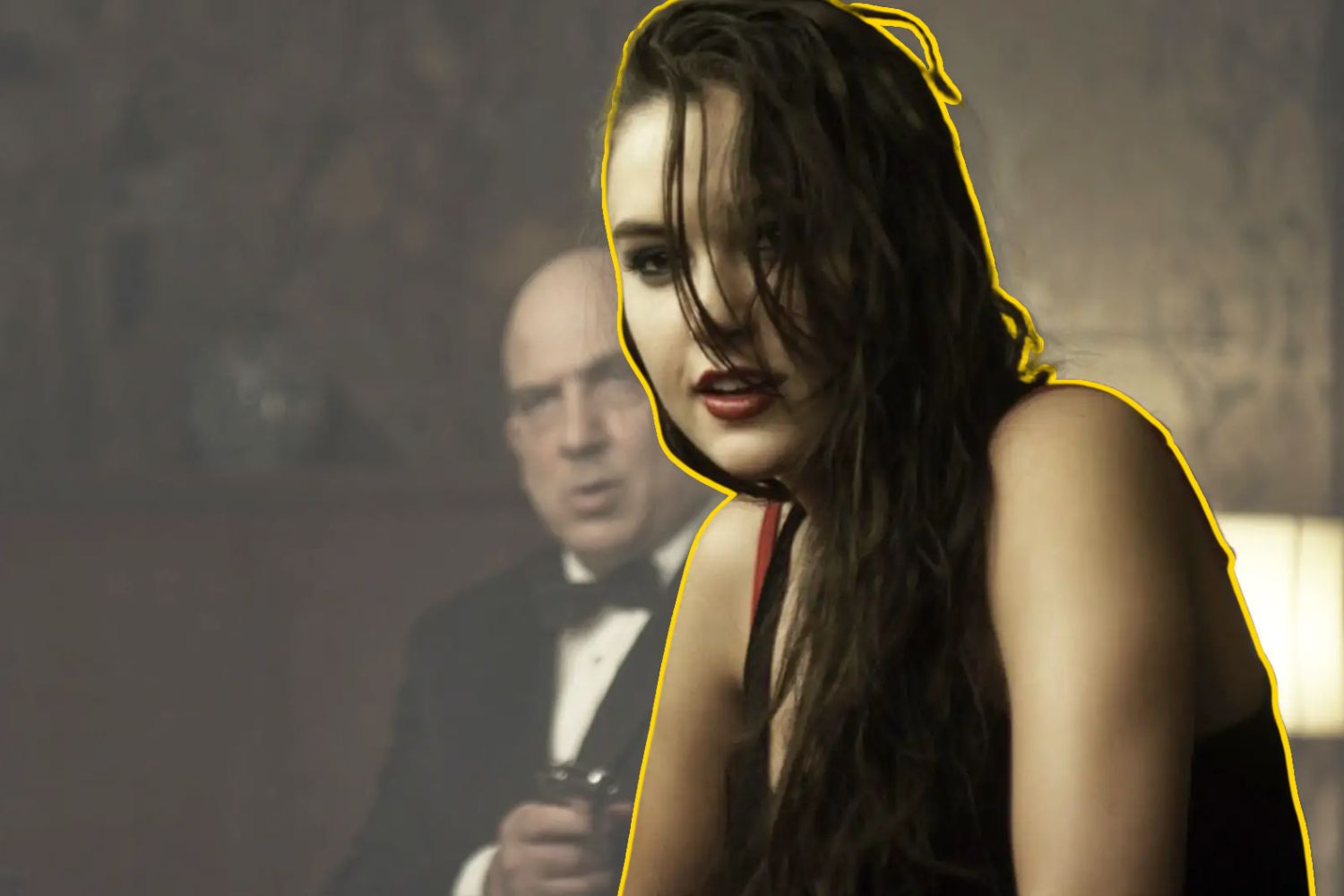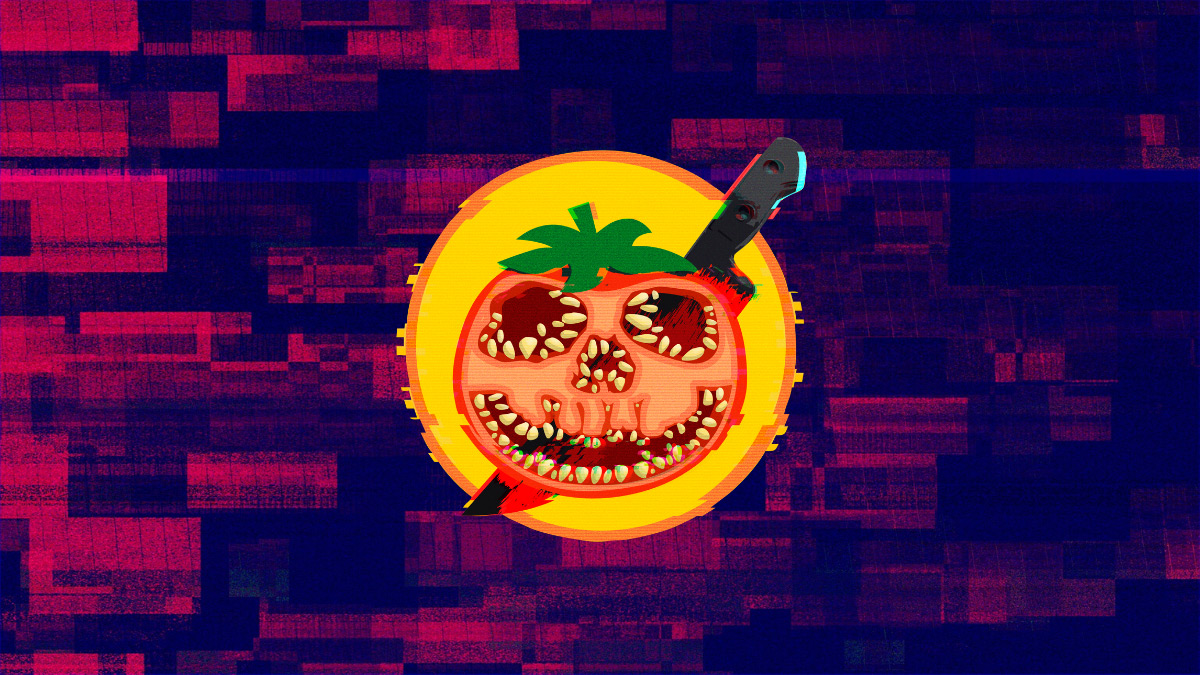Editorials
The Psychology of Choice in ‘Would You Rather’
February 23rd, 2023 | By Danielle Cappolla

The title of David Guy Levy’s Would You Rather is stylized as a question without a question mark. This may be a deliberate choice by writer Steffen Schlachtenhaun, as the 2012 horror movie explores how and why people make choices. By taking the question mark away, viewers are left to wonder if characters control the choices they’re making. While the film lies buried in the abyss of 2010s horror, the theme of choice gives insight into the human psychology of decision-making under dire circumstances.
Would You Rather is a worthy predecessor to Netflix’s Squid Games. Protagonist Iris (Brittany Snow) is a desperate woman who can’t seem to catch a break. When Iris’ parents die in an accident prior to the events of the film, she leaves school to take care of her sick brother. Iris’ sibling Raleigh (Logan Miller) has cancer and needs a bone marrow transplant.
Wealthy philanthropist Sheperd Lambrick (Jeffrey Combs) offers Iris a chance to play a game at his home. If Iris wins the game, Lambrick will absorb all of her debts and find Raleigh a bone marrow donor. When Iris accepts Lambrick’s invitation, she enters a deadly game of “Would You Rather?” with seven other contestants. Players must choose between two undesirable options and act on their choice. As the game progresses, the choices become more lethal.
According to William Glasser’s choice theory, behavior exhibited by humans is the product of choosing. Thus, only humans have the power to control themselves. The choices Iris makes shape the narrative and outcome in Would You Rather.
In the beginning of the film, Iris’ tragic life circumstances direct her choices. With her parents gone and debt piling up, she drops out of school to care for her brother. Iris sounds unsure of herself, as her voice upticks at the end of each sentence, like she’s asking a question instead of answering one. She establishes herself as a good person of solid moral resolve, who sacrifices for her brother and shows kindness to strangers. Snow portrays Iris as someone who lets others make her choices rather than being proactive and decisive.
Iris makes her first active choice of the film when she accepts Lambrick’s invitation. Lambrick gives Iris a time limit and tells her she must respond by eight o’clock to take part in the game. Iris accepts Lambrick’s offer right after she gets rejected from a job. Iris makes her second choice when she relinquishes her possessions to enter the game. When she releases her keys and phone to Lambrick’s butler, Bevans (Jonny Coyne), there’s no turning back.
While game master Lambrick sets the parameters of the choices, he reminds the players that it is their decisions that move the game forward. He illustrates the human capacity to choose their own behavior by manipulating his guests at a dinner prior to the start of the first round. He offers Iris $10,000 to eat steak and foie gras. Iris objects, saying she can’t because she’s a vegetarian. Lambrick challenges her by promising, “You can, but you won’t… yet.” The $10,000 price tag is enough to convince Iris to let go of her vegetarian philosophy, despite years of discipline. Iris’ decision to abandon her morals for the cash reward illustrates chosen behavior.
After explaining the rules, Lambrick offers the players one last chance to leave the game. He explains his rationale for hosting, telling the players it’s a simple game about the rawest form of decision-making. He frames the game as an opportunity to see a person’s character under pressure when morals and ethics are stripped away. Lambrick’s game tests choice theory in its basest form, as the players control their own behavior. The players choose to stay, and must face the consequences of their decisions from this point in the narrative forward.
Each choice in the game brings Iris closer to her goal, but further from her values. In the second round, players are asked to choose which act of violence to commit against another contestant. When Iris faces the choice to whip Travis (Charlie Hofheimer) or stab Lucas (Enver Gjokaj), she picks the whip. Iris’ choice potentially spares Lucas pain but contributes to Travis’ death at the end of the round. Although Iris feels forced to choose, her decisions are her own.
When the characters question Lambrick about why he is subjecting them to torture, he reminds them they are the ones in control of the choices they make. Players who try to leave as the body count rises are reminded that they were given a choice to leave at the start of the game and chose not to take it. Lambrick’s cruelty underscores the reality that once humans make a choice, it can’t always be reversed.
Glasser’s choice theory also theorizes that humans are driven to satisfy their basic needs of survival, love, belonging, power, fun, and freedom. The escalating violence horrifies the contestants, yet they have logical reasons for remaining.
Iris’ choices in rounds two through four illustrate her desire for survival and freedom. She shows willingness to harm other players to survive the game. She chooses known risks over unknown risks. In the third round, Iris puts her head underwater for two minutes so she won’t have to confront the unknown risk sealed in an envelope. This decision shows that Iris would rather choose a known risk to increase her chances of survival. Knowledge of the task puts Iris at an advantage and puts her in control of what happens to her next. Iris survives underwater for two minutes, further justifying her choice.
Iris’ love for her brother also drives her decision-making. She continues to play the game, despite feeling disgusted and terrified by each unfolding challenge. Her brother is her last remaining family member, and losing him means losing a sense of belonging and familial love. Iris’ desire to keep her last remaining family alive motivates her sickening choices.
The choice Iris makes in the final round shows how she defends her basic needs for power and survival. Lambrick offers Iris the chance to walk away alive with Lucas, but with no money. Her other choice is to shoot Lucas and win the financial means to save her brother. Although Lucas has been an ally in the game, Iris realizes she can take back her autonomy and survive the game by eliminating him. Lucas pleads with Iris. He attempts to humanize himself by telling Iris he understands her motivation for playing to save her brother. In this scene, the camera focuses on Lucas. The audience does not get to see how the choice plays out on Iris’ face. The sound of the gunshot and blood blooming on Lucas’ chest show the audience that Iris chose her brother’s survival over Lucas’.
By winning the game, Iris fulfills her basic needs. She is the last player alive, and her victory has earned her the money she needs to pay off debts, and keep her family’s house. With Lambrick’s influence, she has the power to move her brother to the front of the donor list. By surviving to the end, she also wins her freedom from Lambrick’s control.
While Iris never fulfills the basic need for fun during the film, antagonist Lambrick fills that gap for the audience. Lambrick’s amusement is palpable as he chuckles with unconcealed delight at the horrors that ensue. He mocks each contestant’s fears, reveling in their discomfort. When Iris wins the game, Lambrick jumps up and gives her a round of applause, punctuated by hearty cheers. The game fulfills Lambrick’s desire for power and entertainment, as he manipulates the circumstances of the choices. However, he lets the players bear the full weight of responsibility for their choices and the ensuing consequences.
Iris justifies her choices in the game as worth the price of saving her brother. Iris bears the responsibility of the outcomes her choices brought forth. When Iris arrives home to find Raleigh has committed suicide, she faces the consequences of her decisions. Every choice she made in the game was in the service of preserving their family structure. Raleigh’s death means every choice Iris made in the game can no longer be justified. She murdered Lucas and contributed to Travis’ death for nothing. Iris’ ending reminds the audience that the hardest part about choosing between two outcomes isn’t making or justifying a choice. Humans have to live with the consequences of the choices they’ve made, knowing they could have chosen differently.

